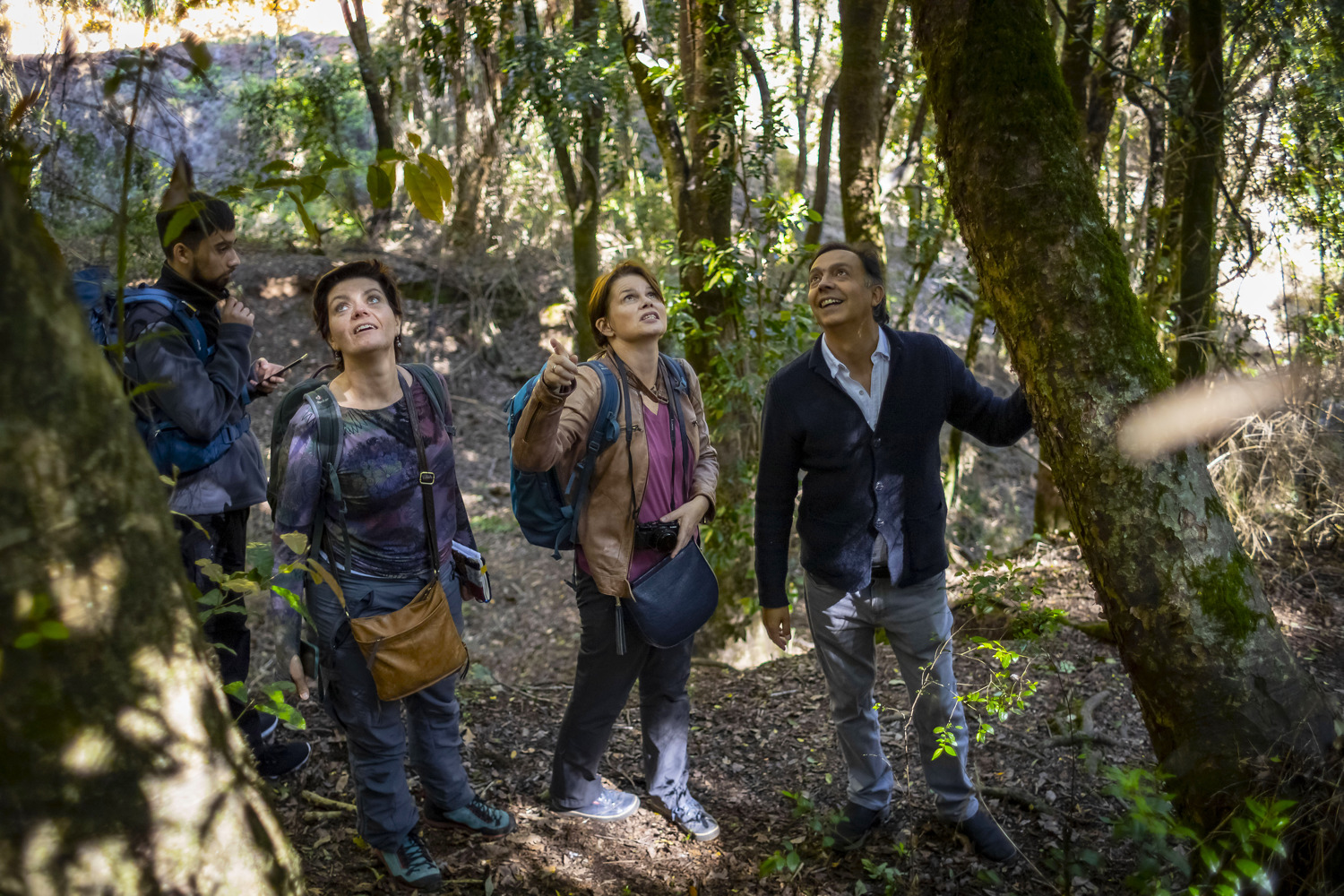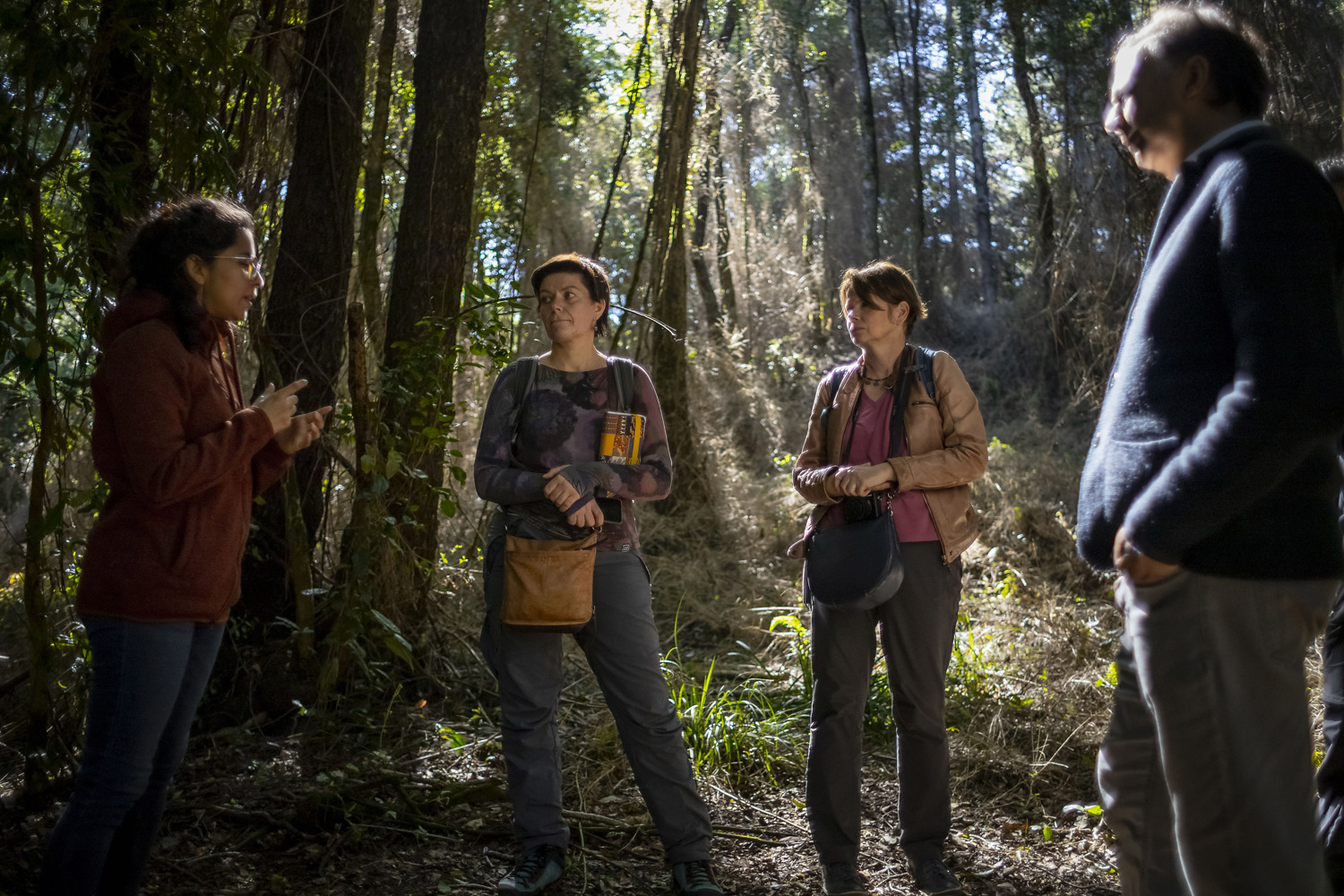European Researchers Visit Campus Naturaleza UdeC

With a visit to the native forest, the stay of researchers Sylwia Kulczyk and Marta Derek concluded. The academics from the University of Warsaw in Poland shared their impressions and discussed Campus Naturaleza's relevance to increasingly global issues.
"I don't know of any other project that opens up so many possibilities, both for ecological research and for people, considering that it's a site adjacent to the university campus," said Dr. Sylwia Kulczyk, a researcher at the University of Warsaw, Poland, commenting on her impressions of the visit alongside researcher Marta Derek to the grounds where the Campus Naturaleza project of the University of Concepción will be implemented.
Both researchers held a discussion on the connection between nature and people from the perspective of cultural ecosystem services for students at the Faculty of Forestry Sciences. They also explored the main remnant of the coastal native forest, which is the heart of this unprecedented initiative in Chile, addressing biodiversity conservation and the benefits of ongoing human contact with the natural environment, among other aspects.
"We need to make these connections between the forest and people, students, and visitors. There are so many options that, honestly, during our visit to the forest, we were impressed because it opens up so many possibilities. Personally, I would like to visit again in a few years; I am sure that this project will grow significantly. Because of all this, we would like to observe and support you from outside in this process," Kulczyk remarked.
She emphasized the importance of understanding public perception of the project from her experience. "We ask our general audience in Poland about plants, if they recognize sounds, among other elements, to get an idea of where we stand and what we can work on."

She added that globally, there is a shift in paradigms regarding human interest in nature. "There is a demand, for example, for guided tours to explore nature with specialists. In Warsaw, we had an experience with a European expert on edible plants. We were invited, and we thought it was crazy that people would pay $70 for a two-hour tour, but people are interested. It turns out that knowledge about edible plants is new, but my own grandmother knew about these plants because they used them for food during the war. So there are new learnings that are rediscoveries of existing knowledge and they interest people, in a context where it's complex to combine scientific knowledge with the public world."
Global Themes
The pandemic, climate change, nature, and people's mental health are important global issues, explained Dr. Marta Derek, also a researcher at the University of Warsaw. "In Poland, for example, we conducted research on how people use nature, and during the pandemic, we found that many people started going to natural places, especially those outside the city. I believe this is a global trend, where people realize the importance of nature in their lives, and we have data showing that mental health benefits from people's contact with nature."
She added that to further these aspects, communication is crucial, not only in terms of informing people but also in understanding them and meeting their needs "and doing so in a sustainable manner," she clarified.
"So, when we were thinking about understanding what people do in the forest, it's possible. You can do it in many ways, like asking, conducting surveys; we thought that taking people into the forest and talking to them there would allow us to really see what's important to them, because when you're with someone in the forest, you can comment on what really interests you. So we interpret this in a way that shows us the things that are really important to them, like plants or animals," she emphasized.
Regarding the Campus Naturaleza project at the University of Concepción, she noted that while it is an area with restricted access, it is still a place known to people, and therefore, some tasks must be handled carefully. "One of the things we did in Poland was analyze people's footprints in apps, how people use these tools, how they walk, run, or ride a bicycle. So, for example, if you think about what path we should leave open to the public, it's good to open paths that are already in use because otherwise, I guess, it won't work."
She added, "If we think about what kind of trees, for example, we want to show people, it's good to know what they already know about them. And since we probably want to communicate something about the native forest, people need to understand what it is and why it's important."
The academics from the University of Warsaw, members of the International Association of Landscape Ecology, were invited as part of the Fondecyt 1231230 project, led by the Landscape Ecology Laboratory at the University of Concepción.


